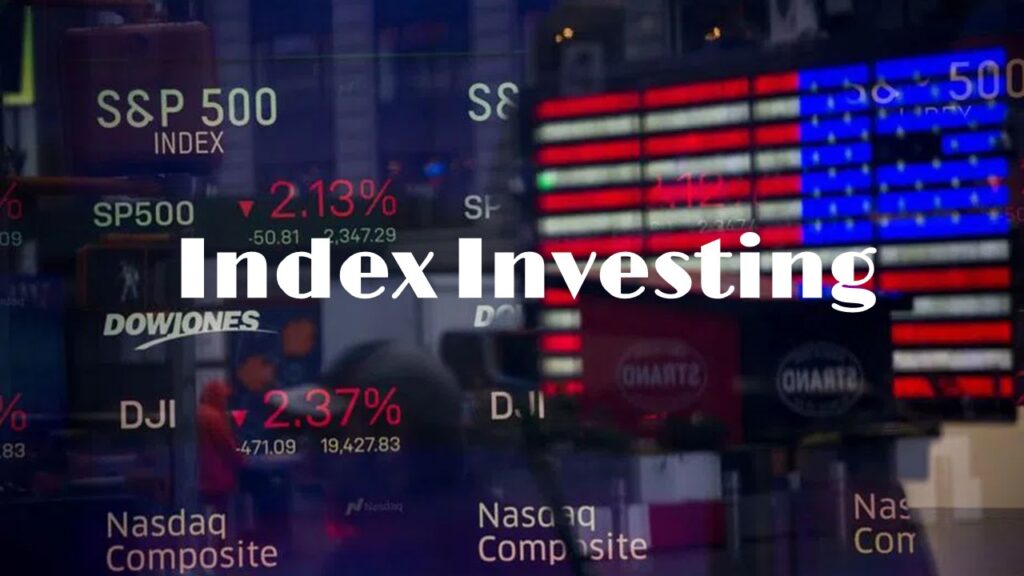
Index investing is widely considered one of the safest and lowest-cost investment methods. It is being recommended by many investment gurus and being practiced by many personal finance savvy people in the world. In this episode, I want to capture a few basic points of index investing.
What Is Index
The definition of an index on Investopedia is: “An index is a method to track the performance of a group of assets in a standardized way”. It can be constructed as a broad-based index to capture the entire market: such as the famous Standard & Poor’s 500 Index (SP500), which tracks the performance of top 500 companies in the US, or the Dow Jones Industrial Average (DJIA), which tracks the top 30 companies in the US, or MSCI World Index which tracks more than 1500 companies all over the world.
An index can also be constructed to only represent a specific industry or segment. An index can be built in a few ways such as market-cap-weighted, priced-weighted, or equal-weighted. But ultimately each company in the index only consists of a small percentage of the index. Hence the price movement of a specific company will not significantly change the price of the index.
Advantages Of Index Investing
As you can see, the biggest advantage of an index is its diversification. If you invest in a company, there is a higher chance that the company doesn’t do well (or even go broke!). If you invest in SP500, what’s the chance all 500 companies go broke?
Another advantage of index investing is its lower cost, compared to an actively managed fund. This is because, in an active fund, the manager needs to charge a higher fee to compensate for his or her time on stock picking. In an index fund, no stock picking is needed. Just follow the index!
The third advantage is index investing requires the least effort, with no need to study company fundamentals or time the market. Just follow the index!
How To Invest In Index
You can either buy an index fund from a fund provider or just simply buy an index ETF (exchange-traded fund) from your stock brokerage. There are popular ones like the SP500 index ETF or All World index ETF. Find a good ETF with low fees, buy and hold, and you will enjoy the market return with peace of mind.
指数投资被广泛认为是最安全和成本最低的投资方法之一。它被许多投资大师推荐,并被世界上许多精通个人理财的人所实践。在本文中,我想解释指数投资的几个基本要点。
什么是指数
Investopedia对指数的定义是:“指数是一种以标准化方式追踪一组资产表现的方法”。它可以构建为涵盖整个市场的广泛指数:例如追踪美国500强公司业绩的著名标准普尔500指数 (SP500),或追踪美国前30强公司的道琼斯工业指数 (DJIA),或追踪全球1500多家公司的 MSCI世界指数。 我们也可以构建一个指数来只代表一个特定的行业。可以通过几种方式构建指数,例如市值比重、价格比重,或相等比重。但最终指数中的每家公司只占指数的一小部分。因此,特定公司的价格变动不会显着改变指数的价格。
指数投资的优势
如您所见,指数的最大优势在于其多元化。如果您投资一家公司,则该公司经营不好(甚至破产!)的可能性是存在的。如果你投资 SP500,500 家公司全部破产的可能性有多大?与主动型管理基金相比,指数投资的另一个优势是成本较低。这是因为在主动型基金中,基金经理需要收取更高的费用来补偿他或她在选股上花费的时间。在指数基金中,不需要选股。 跟着指数走就对了!第三个优势是指数投资最省力,无需研究公司基本面或把握市场时机。 跟着指数走就对了!
如何投资指数
您可以从基金提供商处购买指数基金,也可以直接从您的股票经纪处购买指数 ETF(交易型开放式基金)。比较流行的有SP500指数ETF或All World指数 ETF。找一只收费低的ETF,买入后长期持有,安心享受市场回报。
#financialfreedom #indexinvesting
For other topics on financial intelligence, you can find it here https://nickandmoney.com/category/fi/
Follow me on Twitter: https://twitter.com/nickandmoney
nick and money – improve your finances and wellbeing